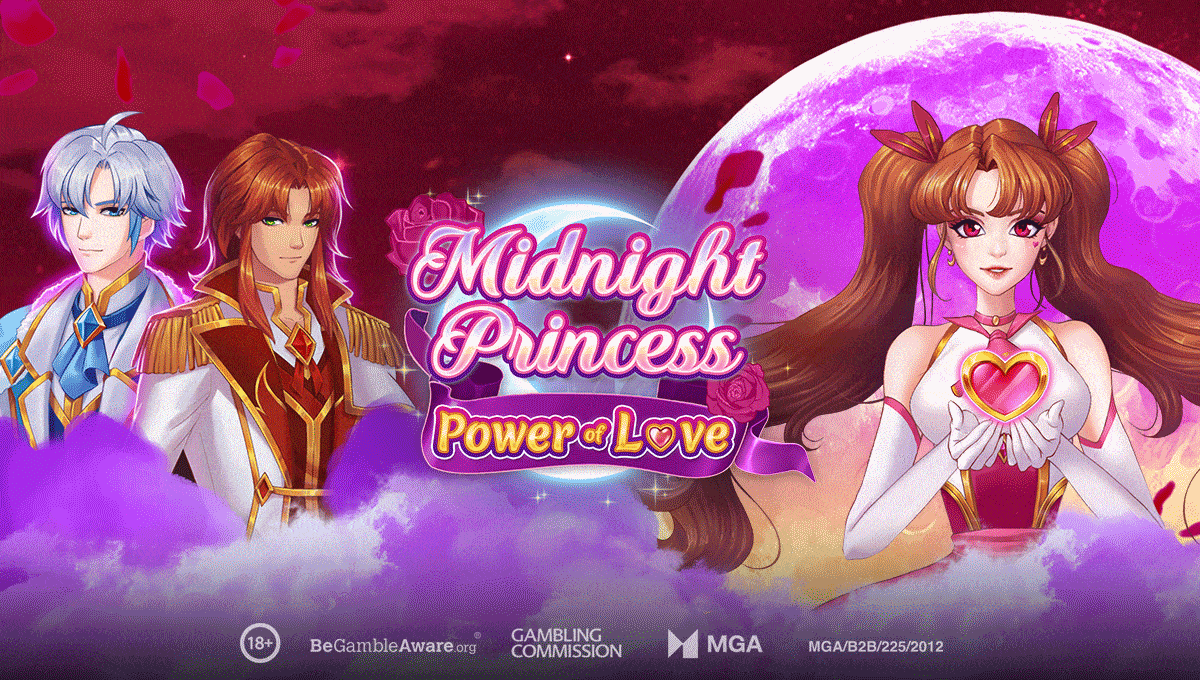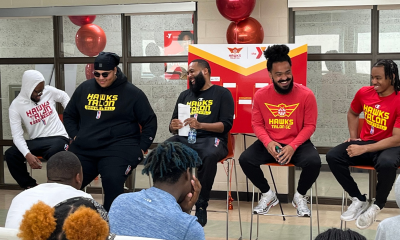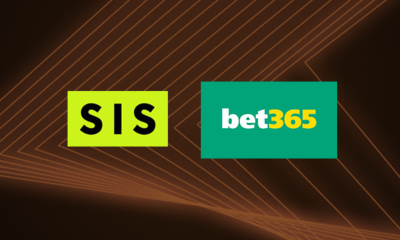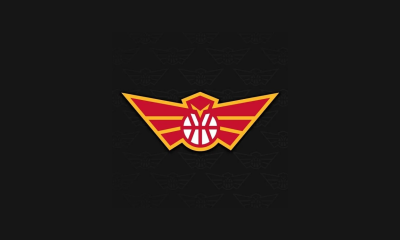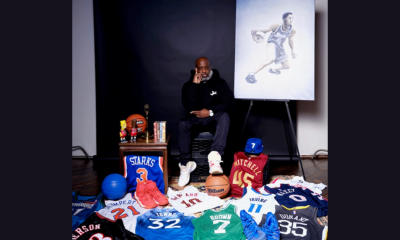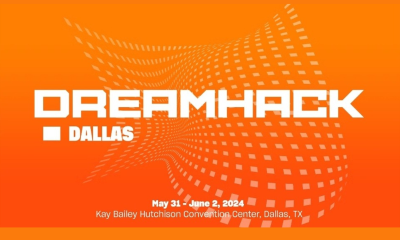eSports
HAWKS TALON GC OPEN 2023 NBA 2K LEAGUE SEASON ON THURSDAY, MARCH 9
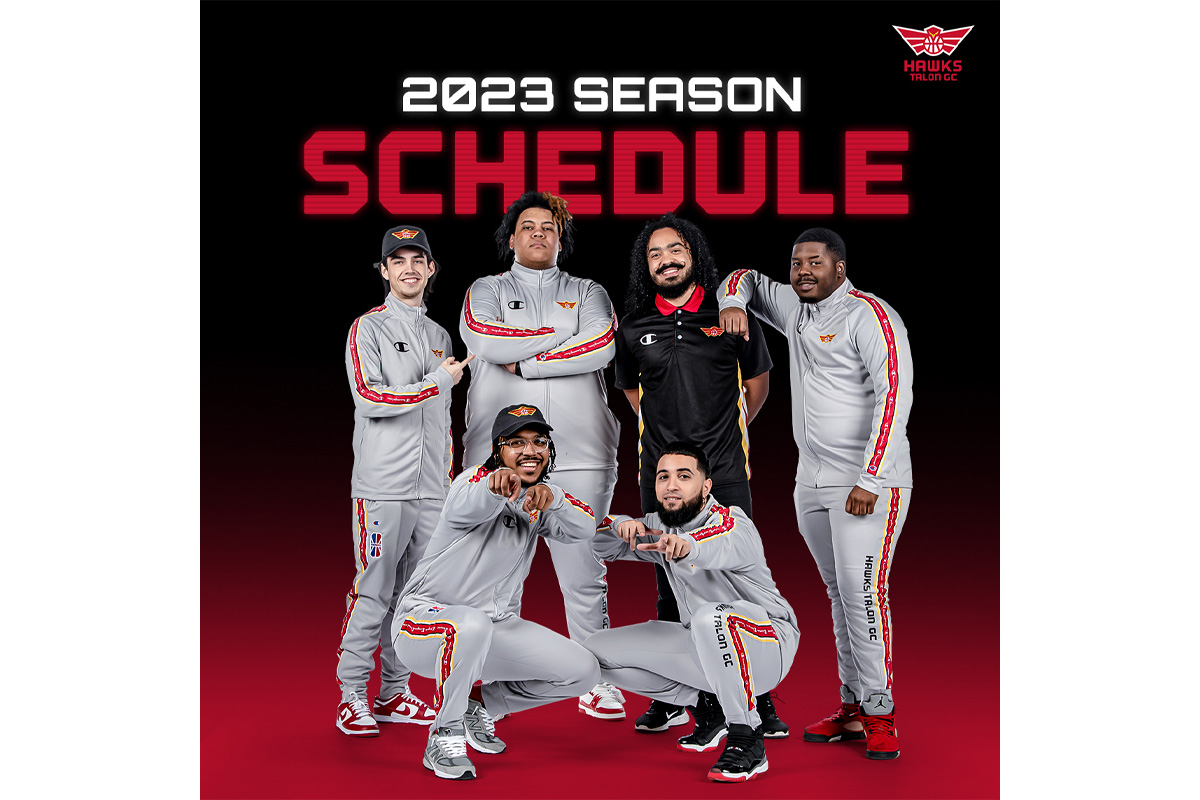
Hawks Talon GC, the official NBA 2K League affiliate of the Atlanta Hawks, will begin the 2023 NBA 2K League season on Thursday, March 9 with matchups against Celtics Crossover Gaming (6:45 p.m. ET) and Kings Guard Gaming (8:15 p.m. ET) in 3v3 gameplay. All games throughout the season can be found on the NBA 2K League’s Twitch and Youtube channels.
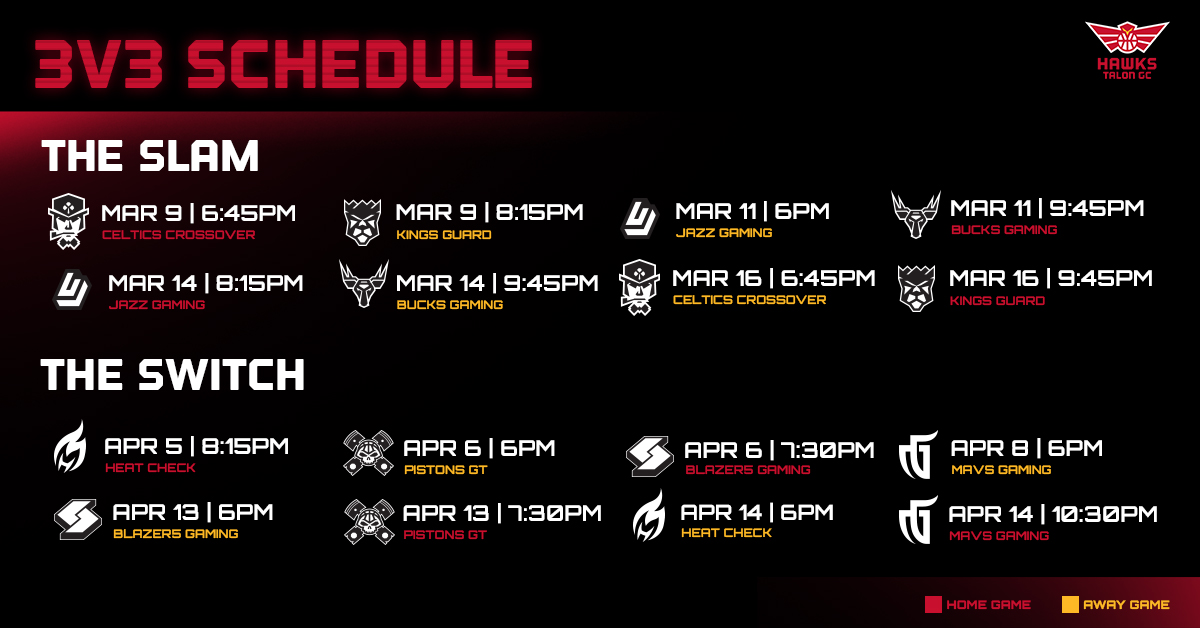 In the recently announced 2023 NBA 2K League season structure, all 3v3 tournaments will be played beginning on March 8 and will run through May 13. This will include the SLAM OPEN, SWITCH OPEN and STEAL OPEN, and the 3v3 NBA 2K League Playoffs. The 3v3 format will include double elimination bracket play and no conferences. At the end of two weeks of group play in each tournament, all 25 NBA 2K League teams will advance to a 32-team remote bracket play for the first week, with the 12 top-performing NBA 2K League and Community teams remaining advancing to in-person bracket play in Washington, D.C. for the following week.
In the recently announced 2023 NBA 2K League season structure, all 3v3 tournaments will be played beginning on March 8 and will run through May 13. This will include the SLAM OPEN, SWITCH OPEN and STEAL OPEN, and the 3v3 NBA 2K League Playoffs. The 3v3 format will include double elimination bracket play and no conferences. At the end of two weeks of group play in each tournament, all 25 NBA 2K League teams will advance to a 32-team remote bracket play for the first week, with the 12 top-performing NBA 2K League and Community teams remaining advancing to in-person bracket play in Washington, D.C. for the following week.
Following the conclusion of all 3v3 tournaments, 5v5 gameplay will commence, beginning on May 23 and running through Aug. 5. The 5v5 format will follow last season’s traditional format with conferences and single elimination bracket play and will include THE TIPOFF, THE TURN, THE TICKET, and the 5v5 NBA 2K League Playoffs. During two weeks of group play, teams will face off in smaller groups (three groups of six teams, one group of seven) within their conferences. After group play, the top four teams from each group will advance to bracket play, the first week of which will be played remotely. The best eight teams from that original group of 16 will then advance to in-person bracket play in Washington, D.C.
Hawks Talon GC returns to the virtual court on the back of their most successful year in 2022, having advanced to bracket play in three of four regular season tournaments and making the 3v3 NBA 2K League Playoffs for the first time in franchise history. On Jan. 26, Hawks Talon drafted Mark David Smith (MDS) with the first overall pick in the 2023 NBA 2K League Draft. The team also traded for 2022 NBA 2K League All-Star Sam Salyers (GRADIENT) and drafted DeJuan Queen (HIDEJUAN) with the 37th pick. The three new additions join Caesar Martinez (CEEZ), who won Player of the Week honors twice last season, and Juan Gonzalez (HOTSHOT), a five-year NBA 2K League veteran and 2019 All-NBA 2K League Second Team member acquired prior to the 2022 season.
Compliance Updates
PandaScore secures their first US betting license, by entering Colorado

After a meticulous and measured research process in consultation with the needs of its clients, PandaScore has acquired a license to operate in the US state of Colorado.
Through the license, PandaScore has signalled its intentions in the US market: forging a supplier-led path to esports betting success in the US. Existing PandaScore clients can now enter the Colorado market, scale up their esports offering and build their future audience in the state’s esports-friendly regulatory framework.
Future clients can also be confident that working with PandaScore supports their growth strategy in the lucrative US market. The state’s esports-friendly regulatory framework serves as a solid foundation to cultivate an esports audience and take advantage of PandaScore’s innovative, revenue-driving products such as BetBuilder, player props and microbetting.
PandaScore selected Colorado as its first point of entry into US licensing thanks to the state’s large catalogue of esports titles and competitions that are eligible for regular betting, and the wide range of markets that can be offered. Additionally, the state’s flexible and innovation-friendly licensing regime makes it a strong market for PandaScore and its clients.
Securing the license also serves as proof of concept for the French esports supplier, PandaScore Legal Counsel Alexis Brunet noted that “securing the Colorado license is a strong signal of our intentions in the US and are serious about its potential. Esports in the United States is a fast-evolving regulatory environment, but it’s only going in one direction: expansion. We intend to provide our best-in-class products and services to our customers no matter where they are, and service one of the largest markets in the world.”
For PandaScore CEO Flavien Guillocheau, entry into Colorado in the US market was the natural next step in the company’s client-first, service-oriented approach: “For esports to succeed in the US, suppliers must lead from the front. Suppliers need to address the uncertainty around regulation which has held back operator investment and thus growth of the vertical.
“We’ve proven we know the market, get a license efficiently and do it in a way that puts operators first. We’re confident that if our clients are seeking entry into a given market, we can be completely straight with them, show them the viable pathway to success, and create the foundation and access they need to fully harness the potential of esports in one of its biggest consumer markets.”
eSports
the*gamehers and Thunderpick Extend Partnership into 2025
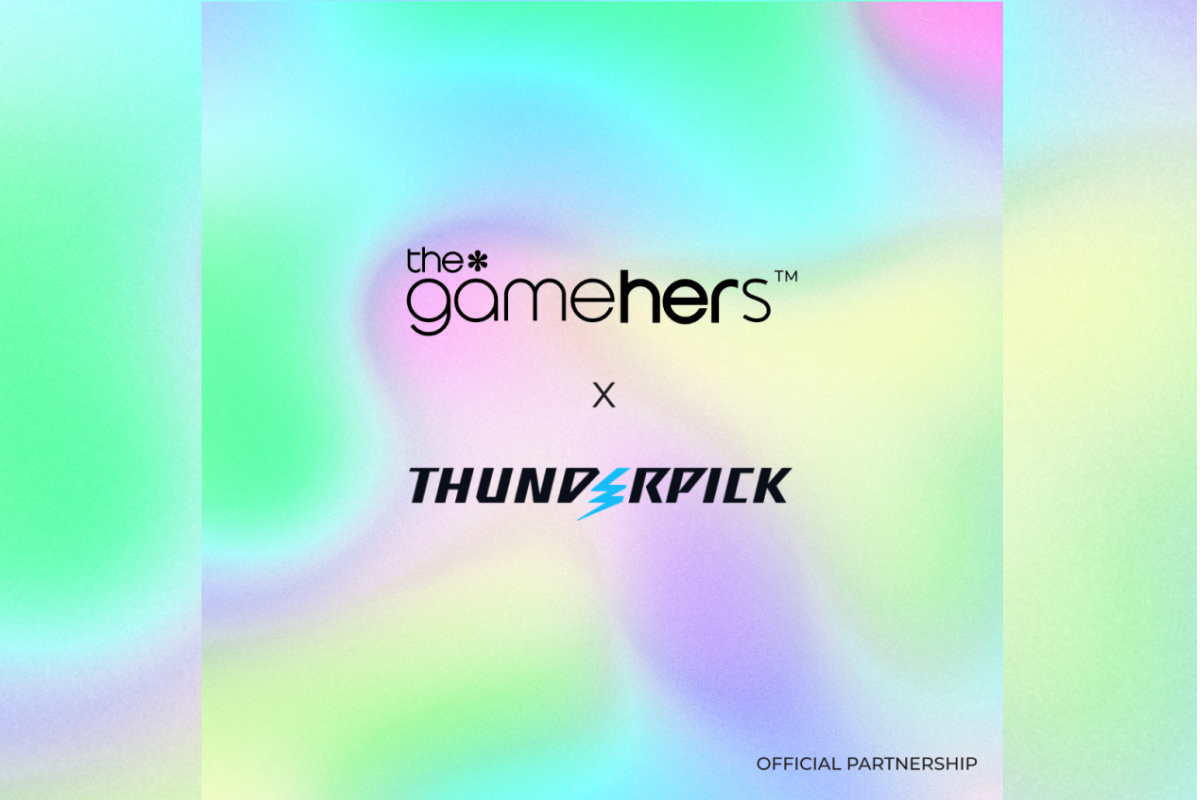
Leading esports brand kick off a year of empowering women gamers, exclusive content, and tournaments
the*gamehers, the women-focused community gaming platform, and Thunderpick, the leading online esports betting platform and host of Thunderpick World Championship today announced the continuation of their partnership into 2025. The collaboration aims to empower the gaming community, specifically focusing on women and femme-identifying gamers and content creators, through an immersive 12-month campaign.
The campaign will feature a content series highlighting women in gaming through brand features, ambassador Twitch streams, exclusive ambassador content, and a biannual tournament that includes behind-the-scenes footage from the ambassador team. Thunderpick and the*gamehers recently hosted the successful femme-focused CS2 Wildcard Tournament in May of this year in Atlanta. More exciting details will be unveiled as the partnership develops.
“This partnership is the perfect way to promote women’s empowerment in esports and the overall gaming community, and we are excited to have the opportunity to partner with a company that has similar goals for women’s inclusion in gaming,” said Allie Young, President of the*gamehers.
“Thunderpick is committed to fostering diversity and inclusion within the esports community,” said Kelly Sanders, Head of Strategy at Thunderpick. “Our extended partnership with the*gamehers underscores our dedication to empowering women gamers and supporting femme-led esports organizations. We believe that in collaboration with the*gamehers we can not only better highlight the incredible talent of women in gaming but also inspire the next generation of gamers to pursue their passions without boundaries.”
eSports
HAWKS TALON GC HOSTS PANEL, NBA 2K TOURNAMENT AT WADE WALKER PARK FAMILY YMCA ESPORTS SUMMER CAMP
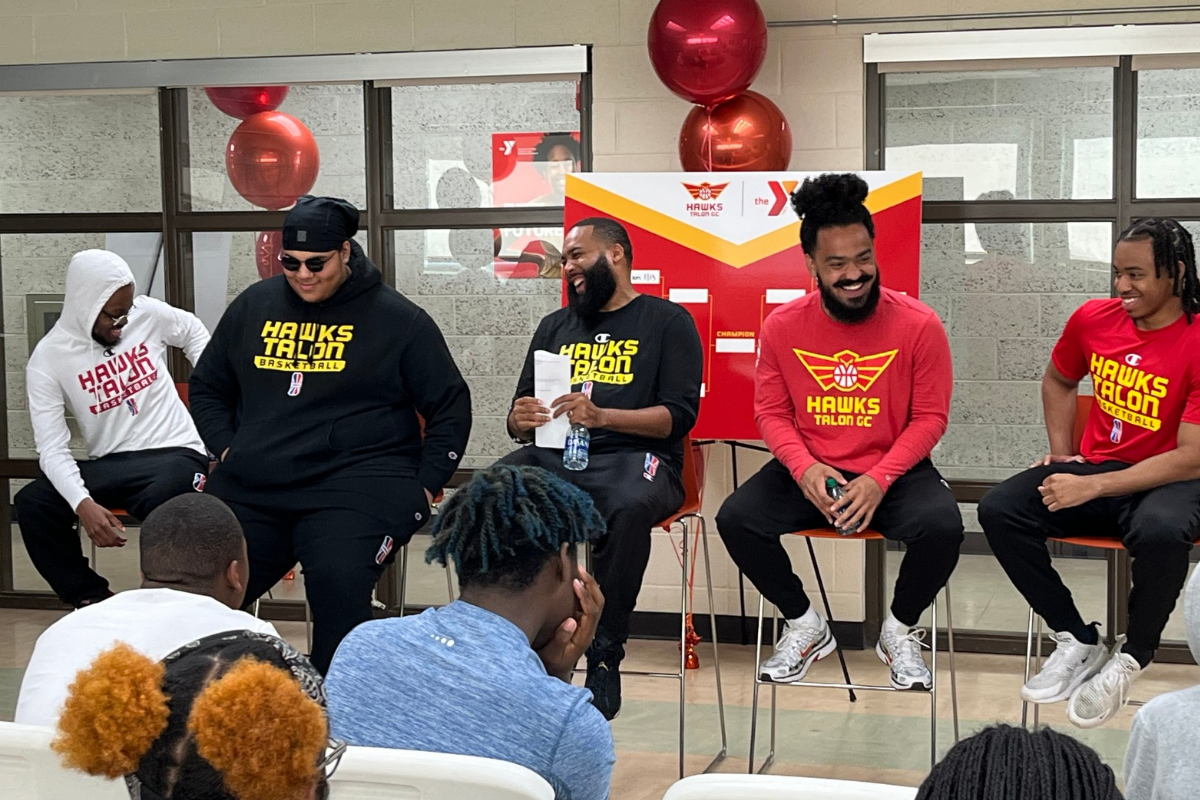
Hawks Talon GC, the official NBA 2K League affiliate of the Atlanta Hawks, hosted a panel and bracket style tournament on Wednesday at the Wade Walker Park Family YMCA as part of the YMCA of Metro Atlanta’s Esports summer camp.
Director of Marketing and Operations, Affiliate Leagues, Wesley Acuff, Hawks Talon GC Head Coach, Ismael ‘MAELO’ Diaz Tolentino, and Hawks Talon GC players Mark David “MDS” Smith, Ludlow “LOW” Samuels and Elijah “Underratedgoat” Spears spoke to 26 camp participants about their journey to the NBA 2K League, and the uniqueness and innerworkings of the League.
“Being able to work with the YMCA of Metro Atlanta and help with their Esports camp was extremely rewarding for our group to be a part of,” said Janice Koon, Vice President of G League, and NBA 2K League Operations for the Atlanta Hawks. “Our Hawks Talon Gaming Club always relish the opportunity to be able to interact with the young kids in our area, and it was a joy for them to talk to and play 2K with the campers this morning.”
After the panel, the group of campers split up into 13 teams to face off head-to-head in a NBA 2K 2v2, single elimination bracket tournament.
In addition to the tournament, the campers were able to utilize another PlayStation within the Wade Walker Family YMCA Esports lab and jump into a 2K game with the official NBA 2K League settings, while utilizing Hawks Talon GC player avatars. The campers were able to play by the official NBA 2K League rules and game settings to experience the authentic feel of being a professional NBA 2K player.
At the end of the tournament, the first, second, and third place teams received Hawks Talon Gaming Club t-shirts and sweatshirts, while all campers will be gifted an official Hawks Talon Gaming Club jersey with the YMCA patch.
“Our Y Esports summer camps help children build self-confidence, practice sportsmanship and gain news skills, while connecting with other gamers,” said Lorna Loh, executive director of the Wade Walker Park Family YMCA. “We greatly appreciate Hawks Talon GC’s partnership and commitment to providing our Y kids with an informative, fun panel about the league and interactive opportunities to improve their skills.”
-
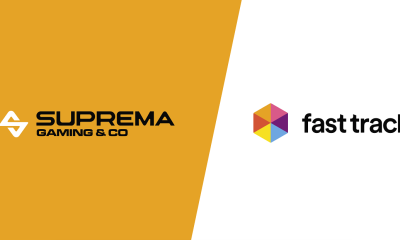
 Latest News3 days ago
Latest News3 days agoFast Track Secures Landmark Deal with Suprema Group – Setting a New Standard in the Brazilian iGaming Market
-
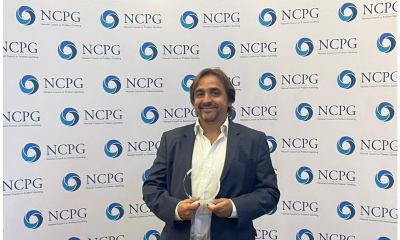
 Gambling in the USA5 days ago
Gambling in the USA5 days agoBetBlocker Recognised for Outstanding Contribution to the Prevention of Gambling Harm at NCPG Awards 2024
-

 Latest News3 days ago
Latest News3 days agoLight & Wonder Expands Presence in Oregon with Additional Placements of KASCADA Dual Screen Multi-Games
-

 Industry News4 days ago
Industry News4 days agoPenn Entertainment to Lay Off About 100 Employees
-

 Latest News3 days ago
Latest News3 days agoRakin’ Bacon Sahara® Launches Exclusively in New Jersey at Hard Rock Hotel & Casino Atlantic City and online at Hard Rock Bet
-
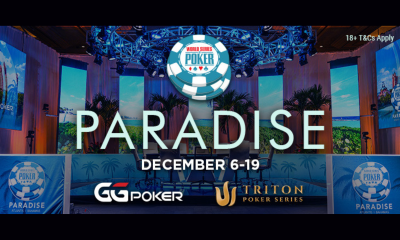
 partnerships3 days ago
partnerships3 days agoGGPoker & Triton Poker Offer High-Roller And Super-High-Roller Events At 2024 WSOP Paradise
-

 Latest News3 days ago
Latest News3 days agobet365 Announces Official Launch in Pennsylvania
-

 Daily Fantasy Sports5 days ago
Daily Fantasy Sports5 days agoDraftKings Becomes Official Partner of the WNBA


